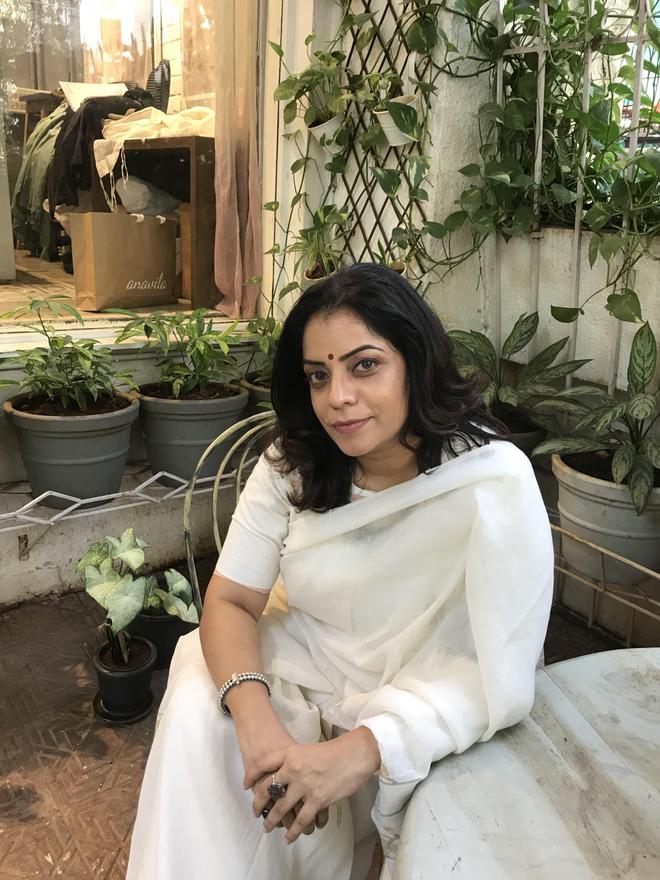The first-ever bridal edit by designer Anavila Mishra, under her eponymous label, puts an artistic spin on wedding apparel. Its motifs are inspired by the Bundi miniature paintings that are rooted in the romantic prose and poetry of 17th Century Rajasthan.
Titled Aamod, the range takes cues from the elements of nature in prints that reflect minimalist and maximalist design sensibilities. Derived from Sanskrit language, the name Aamod translates to pleasure or delight. Its linguistic roots trace back to the verb ‘mod’, which translates to ‘rejoice’ or ‘be glad’.

“A Vedic wedding is a simple event, marked more by rituals than appearance, and hence in many ways, Aamod is a disruption of bridal trousseau that is often weighed down by over-ornamentation and heaviness of design complexities. Red vermilion is a ritual and a symbol that is followed widely and has been over time translated into a complete red bridal look. We slowly see women questioning that norm and expressing themselves openly,” says Anavila.
She shares that it took nearly nine months to curate the collection. “We have been getting requests for personalised wedding looks from our clients. In the past, we have worked with a few brides. Our experience and understanding of this space, coupled with the new wave of curated weddings, led us to this decision,” she says.
The collection comprises lehengas, saris, and kaftans in a patina of hues — turquoise, berry, yellow, peach, and ivory — reminiscent of the ancient Bundi frescos. “The design scenography is an entrancing narrative of nature and the abundance of Bundi’s flora fauna, peacocks, birds, and deers. It is this magical feeling one gets when they visit Bundi palace is what I wanted to recreate with Aamod,” shares Anavila.
The collection is an extension of her experimentation with indigenous textiles and textures in 2011, which saw the advent of the monochromatic linen sari infused with traditional techniques. In Aamod, Anavila has toyed with handwoven linen, linen zari, silk, silk zari, satin, and khadi silk with a few styles in organza.
“Around 100 artisans have worked on the creation of Aamod, all of whom have been long-associated with the brand — from weavers, women behind appliqué, embroiders to the printers,” she says. The edit features jamdani, lehriya, hand appliqué by the brand’s artisans from Jharkhand, hand embroidery with gotta , metal sequins, dabka and pitha. “One of the most important base textiles is linen warp and zari weft,” she adds.
Aamod is an ode to the beauty of simplicity and all garments of this edit are made with a conscious thought of being reused and mixed and matched, says Anavila. “For example, the printed lehenga can be worn in its full glory during the wedding rituals and later adorned with a solid silk shirt as a skirt. The edit is open to fresh perspectives and interpretations,” she adds.
The label first showcased the collection at its flagship store in Mumbai and then in Dubai on October 28. “Working on Aamod, in collaboration with artisans across clusters, and going back to the place of design origin, Bundi palace, to shoot the campaign was a rewarding experience. We engaged with the locals on the days of the shoot and it was like homecoming for the collection,” says Anavila. “The biggest takeaway for me was of the beauty of the human touch, collaboration, and love that goes into every detail of not only creating but presenting and experiencing a creative expression.”
The collection is priced upwards of ₹32,000 and will be available at Anavila stores in Mumbai and Gurgaon.







